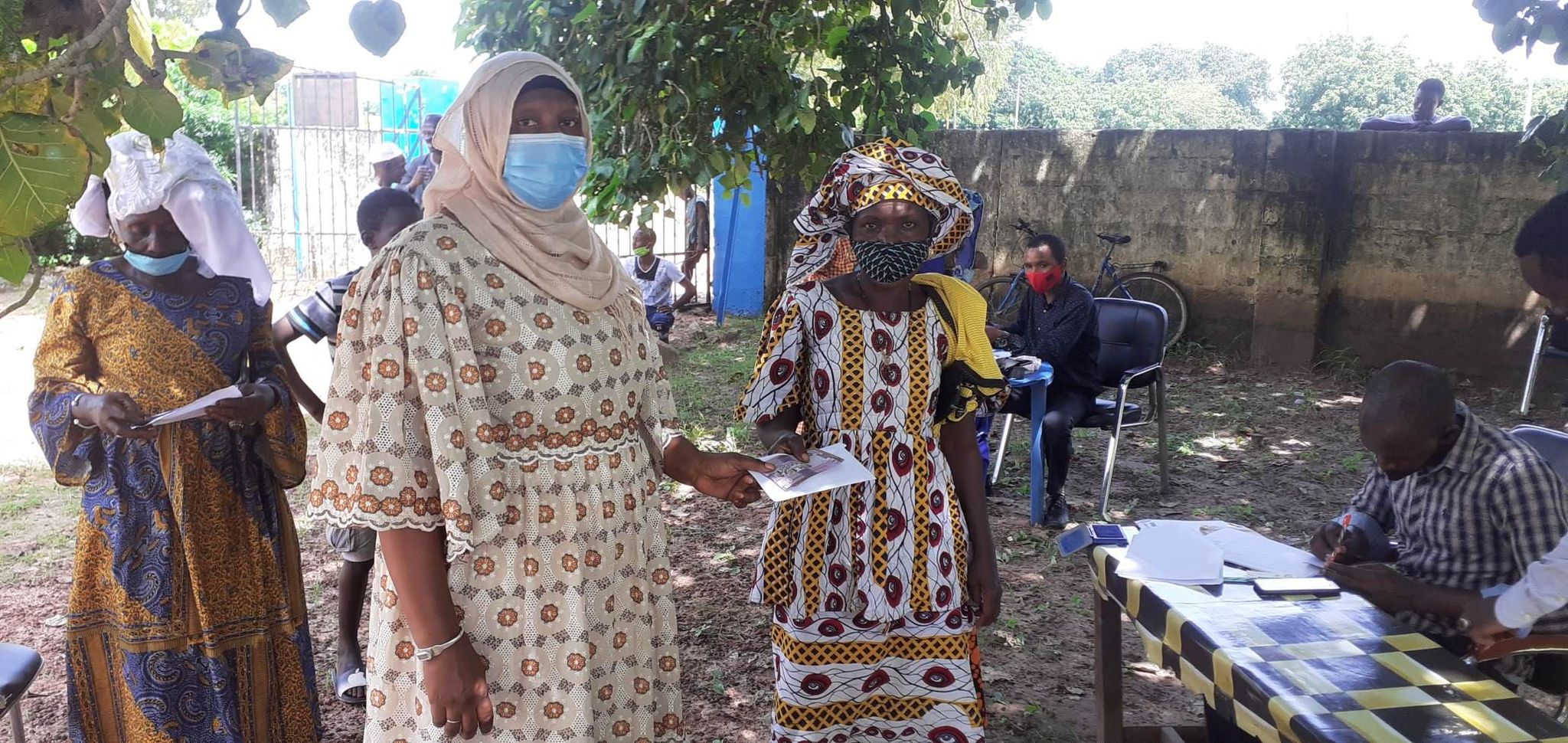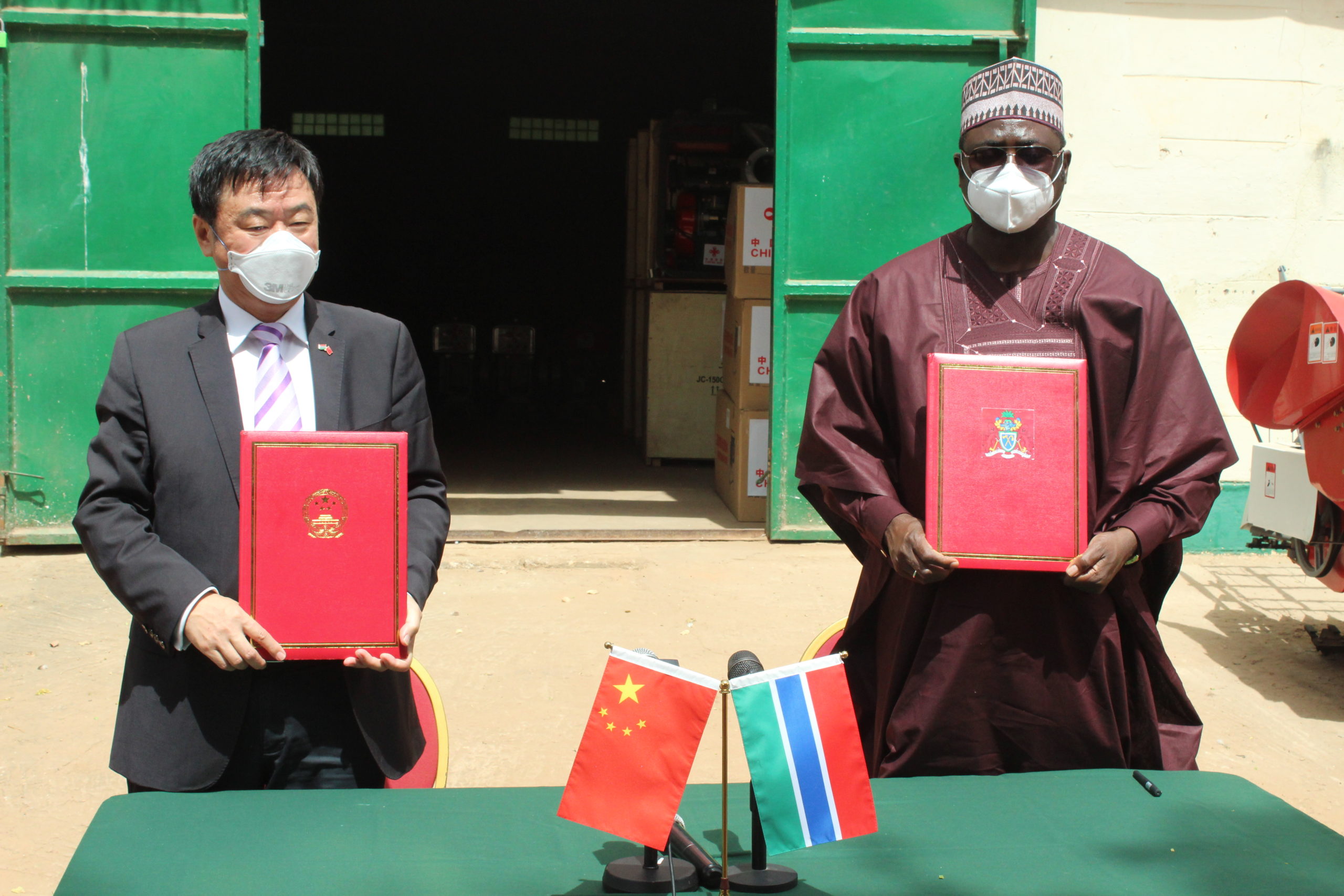By: Haruna Kuyateh, NBR
Sarjo Camara, Project Manager for Women Socio-economic Rights at ActionAid International-The Gambia has disclosed that food insecurity affects women and children in The Gambia.
The Project Manager made this remarks in Juffureh during a two-day cash transfer exercises to 841 households in Upper Nuimi.
The ActionAid International-The Gambia D3.6 million cash transfer was benefitted by vulnerable families of 1,998 and 3,844 reusable sanitary pad to 3,844 girls North Bank Region and Central Region South a respond to Covid-19 pandemic.
According to her, Covid-19 impact assessment has strongly informed AAITG management and board to reprogram and direct focused on Covid-19 to help vulnerable farmers.
“Complain and feedback mechanisms taskforce aim to help farmers lodge complaints on why their families were exempted from the support, but the overall support aims to contribute peaceful coexistence,” she said.
Saikou F Bah, program officer AAITG commended ‘alkalolu’ within the intervention areas for their support and cooperation for extending support to vulnerable families.
He urges beneficiaries to be opened to the monitoring team and share their experiences on the types of support. He noted that the vulnerable assessment conducted by AAITG and the outcomes guided the donor as people request for more supports in the form of food and cash support.
Lamin Saidy, Regional Disaster Coordinator revealed that government Covid-19 emergency food support reached 23, 000 households. He therefore commended AAITG for providing support to 841 families and hailed Eco Zones for their support in the identification of vulnerable families.
The Coordinator described the involvement of three Eco Zones Committees of Albreda, Jimbana and Kerr Cherno as a clear testimony of empowering communities to conduct vulnerability assessment of households. A process he described “transparent.”
He added that CRS, and GRCS has completed assessment of households and will provide one off cash payment support of D8,000 to eight members per households to supplement food and nutrition security.
Aja Kaddy Janneh, from Touba Kolong and other beneficiaries described the intervention as timely as crops are yet to harvest and would supplement food needs.





